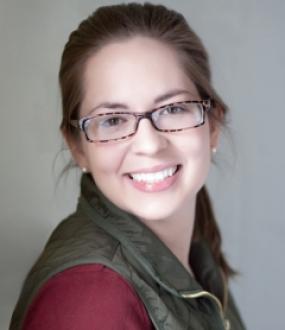The course redesign project supported a revision of BIOS 1107/1207, the introductory biological science course offered every term to roughly 650 students a year. The course used a flipped class model that included pre-class readings and videos and in-class team-based problem solving. The pre-readings in the department-developed, open-access web textbook were re-written to explicitly incorporate the UN SDGs as they related to course concepts.
The course redesign plan was slightly altered due to Dr. Weigel not being assigned to Introductory Biology in Fall of 2023 due to course instructor needs. As a result, she needed to incorporate the entire Introductory Biology Faculty Committee in the textbook revisions and through the recruitment of subjects for study in Spring of 2023, Summer of 2023, and Fall of 2023 semesters. The department also offered an unprecedented 3 sections of the approximately 150-person course in Fall of 2023 in order to accommodate demand, which meant that, although the textbook was common, the courses would not be taught identically. For this reason, materials were shared for potential adoption across all instructors, and the common thread remained the textbook with/without (depending on the semester) SDG revisions. Dr. Weigel also submitted an amendment to an existing IRB study that explored sustainability behaviors/beliefs to add questions directly related to the SDGs.
Students who took and will take 1107/1207 will have learn about biology connections to the SDGs through this course. The revisions explicitly link biology content to each goal and mention diverse careers/applications of SDGs and course content to solving large problems. Because of buy-in needed for the textbook changes, 10 faculty, rather than the original 6, utilized SDGs through the Intro Bio committee. Students were also surveyed prior to the textbook changes, at the start of the course once textbook changes were in place, and after completing the course with the revised textbook. The overall survey included student ability to recall SDGs, connect the SDGs to potential career aspirations, sustainability beliefs and behaviors, and perceptions of how well GT encourages sustainability efforts, and on the post-survey only, some demographic information. Dr. Weigel is in the process of analyzing the data now, however preliminary results seem to indicate that, while students using the revised textbook only marginally improved in recalling SDGs, they showed significant progress in linking SDGs to their major and adopting sustainable behaviors.
Dr. Weigel will be presenting this project at the National Association of Biology Teachers in November of 2024 and in September of 2024 at KSU’s SOTL conference.

"I still want to incorporate the SDGs into my classes and see what happens as a result, but I'm considering whether/how it matters to me if the students can regurgitate or explain the SDGs if it isn't also accompanied by behavioral or perspective shifts in how to approach their discipline. I need to do more thinking about how to assess 'dose' effects and how to make the SDGs not just more content, but rather a framework within which the content fits."